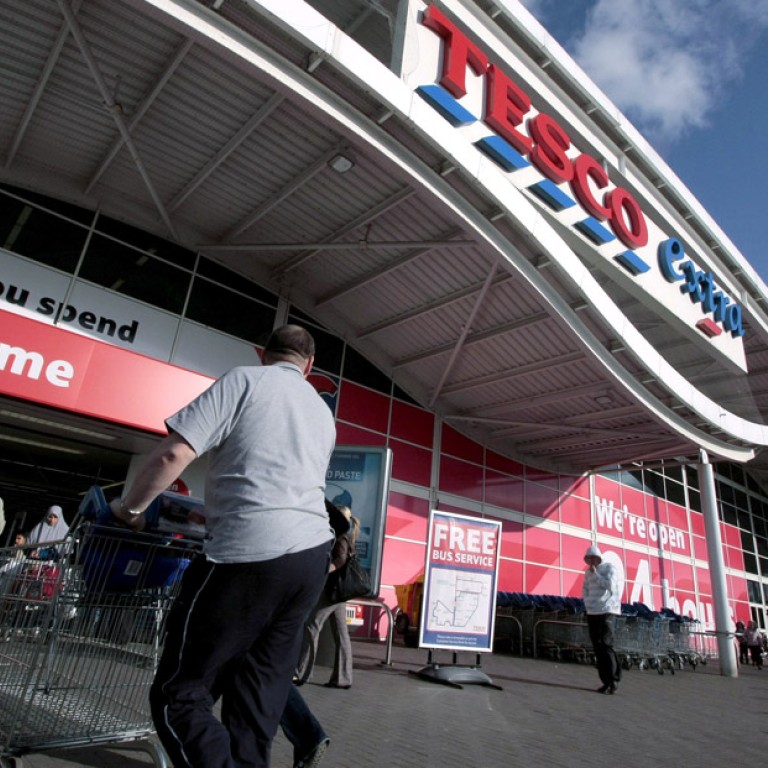
Tesco fiasco highlights the perils of executive luxury during hard times
Some bosses scrimp on costs at the risk of company growth while others gorge on corporate perks even as revenues decline
How many corporate jets do you think a company needs? Should a company have swanky offices in the priciest part of town? In other words, how much is enough to look after the management?
These questions are currently plaguing Britain's biggest retailer, Tesco, which is suffering a sales downturn. Meanwhile, the company has acquired an office for its executives in Mayfair, one of London's priciest districts, and is operating four corporate jets.
This is a far cry from the days when Tesco was run by its founder Jack Cohen, who was famous for parsimony and kept head-office costs down to a minimum. Cohen is long gone and, as happens in most very large listed companies (in Britain at any rate), Tesco has been run by a succession of chief executives who, it can be argued, are good managers but lack his kind of entrepreneurial spirit.
The brewing row among Tesco shareholders raises some interesting issues about what companies need to spend on to be successful.
A common pattern in business is that company founders keep a very careful eye on costs and in some cases take parsimony to extreme lengths that damage prospects for growth. For example, they are often reluctant to hire expensive executives with the kind of expertise required to grow the business. Moreover, they can be mean in spending money on premises, which has an impact on staff morale and thus on the ability to retain the services of valuable employees.
Once the founder has gone, purse strings tend to be loosened, not least because those doing the loosening have less of a memory of just how hard it was to acquire the cash in the first place. Once companies pass from the privately owned to the publicly owned domain, the temptation to use shareholders' money to enhance the lifestyle of the executives tends to accelerate.
In Hong Kong, company founders tend to hang on to the overwhelming majority of the equity and they are also likely to hand their businesses over to their sons as opposed to professional managers from outside the family. While they are in charge, the founders tend to treat their publicly owned companies in much the same fashion as private entities. Moreover, as they obtain the bulk of their remuneration from dividends, they keep a careful eye on costs and are not tempted to be lavish in unnecessary expenditure.
Their successors are another matter and it is not unusual to see them splashing out on jets, luxury offices and goodness knows what else because they control the purse strings, and the purse is full of cash that they never had to earn the hard way.
Still, it may be argued that the amount of money spent on these frivolities can be relatively small compared with overall company earnings and as long as it does not interfere with the core business, why make a fuss?
A counter view is that a company boss who spends a lot of time focusing on luxury is unlikely to be spending enough time on corporate development and may well have a warped sense of priorities.
At the other extreme, a penny-pinching company may well have an equally warped sense of priorities, spending far too much time saving cents while millions of dollars of potential business goes walkabout. It is also highly likely that the cost-obsessive boss will also be a micro-manager, who is reluctant to delegate even a smidgen of responsibility, so the business suffers as matters awaiting the boss' decision pile up on his desk.
The smug answer to the question of too much or too little is to say that a line needs to be drawn down the middle and then everyone will be happy. That smug answer is generally proffered by people who have never run a business, aside from some kind of outfit with the word "advisory" in its title.
The reality is that it is really easy to be bugged by managers who show a careless attitude towards expenditure, even if the sums are relatively small. And sometimes what looks like a careless gesture involving splashing out on something that falls into the category of luxury is well worth the money, because it raises staff morale, keeps a customer happy or simply adds to the peace of mind of the person spending the cash.
So, I am left wondering whether my modest company really needs a Ferrari for its boss. Any colour will do.
Stephen Vines runs companies in the food sector and moonlights as a journalist and broadcaster

